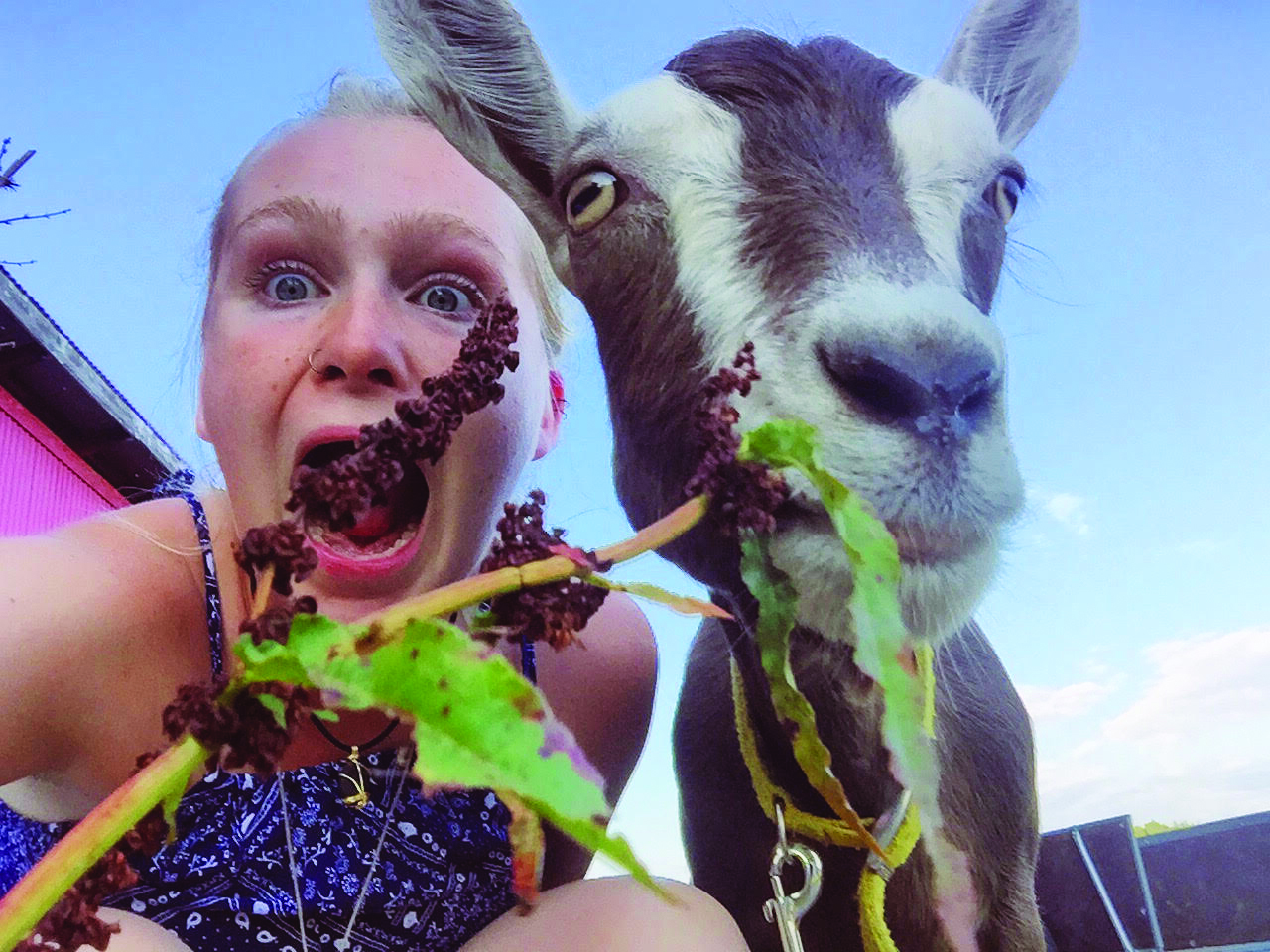I remember the first time pulling into the long, gravel driveway, looking to my left to see a beaten up wooden fence encompassing three acres of land full of colorful, blooming vegetables. I stepped out of my car to meet Samuel, a homesteader who runs the farm. I told him I wanted to volunteer because I felt the physical labor of farm work and the escape from the chaos on campus would lift me out of a funk I recently fell in. We headed out to the field to harvest some tomatoes, grabbing yellow, rectangular bins and piling them onto a garden cart. Sam pulled the cart down the grass path as I followed, taking in the fresh, crisp smells of all the plants happily growing in the neat rows. I stopped for a minute to listen to the whimsical singing coming from the birds and the breathtaking beauty that surrounded me, falling in love with this sweet escape.
The farm helped me deal with stress and anxiety. First as a volunteer and later as a student enrolled in the St. Lawrence Sustainability Program, I worked at the farm to fill this void that crept up on me. It was hard not to smile when getting out of the car to be greeted by a happy pup named Phoenix. Being there helped me find my strength again, which led to a surge in my independence. Working on the farm, I realized I was capable of much more than I thought. I began exploring with camera in hand to capture the remarkable natural world that surrounded campus. On difficult days for me, I would escape to the farm, taking pictures of the eye-catching fauna and flora scattered all around. Some days I would power up the hay field hill and walk around the edges of the woods. Other days I would stay closer to the farm and watch the chickens as they flapped their wings and chased bugs. Each time there was something new that caught my attention.
As part of living at the farm, I learned about bed-prep, starting seedlings, direct seeding, livestock care, basic building skills, and practiced my cooking abilities on a daily basis. I learned how to live independently and make choices for myself. Since I had lived in the house prior to the program starting, I knew all about animal and house chores, where all the food was kept in the pantry, and how the composting system worked. When other students had questions I was more than happy to help point them in the right direction. Together we learned how to make collective decisions, resolve problems, and choose the kinds of lifestyles we wanted to support in our house.
I later told Sam about my idea of wanting to build my own tiny house, and I asked him if I could work on a research project to design one with his guidance. He was immediately hooked and even worked with another professor so I could get environmental credit to go towards my major. I found out that the tiny house movement was a choice to live minimally whether for financial, environmental or materialistic reasons. As I began applying some of the new lifestyle choices to my life, such as decreasing my possessions, I found a new kind of happiness. Having fewer things forced me to really evaluate the meaning and functionality of each item in my life. I didn’t even realize before how many items I had that I barely wore or used. As I began to declutter my closet and life, I felt a sigh of relief because my stress and depression slowly started fading away.
As part of the program, we all took classes while working and living at the farm. We cooked all of our meals together and formed a tight-knit community. Majors in environmental studies, economics, chemistry, mathematics, and English worked as a group to live with a smaller carbon footprint. We did struggle to balance commitments with academics, farm work, jobs, and student clubs, but we found a rhythm by mid-semester.
At home on winter break, I offered to help my mom cook, and it was fun not only to help create a scrumptious meal, but it was great being able to spend more quality time with my mom. It did bother me that my parents did not compost their food waste, and I thought “perhaps I’ll help them create a system”. I also realized how much fossil fuel I was burning in my car, but my mom reminded me that I used my car to explore, and this provides freedom and stability in my life. I still drive, but I now try to explore more on foot, bike, or even skiing.
I’m hoping that by changing this behavior I will become less attached to my car as a way of asserting my independence. Instead, I am hoping that I will learn to correlate this independence with myself and my own capabilities rather than an object. Without the sustainability program, I never would have achieved these behavioral changes or been equipped with the proper knowledge for addressing such concerns. I am unbelievably grateful for the lessons and information the program has taught me thus far and am excited for what’s to come, so I can continue to apply them to my lifestyle choices beyond graduation.



